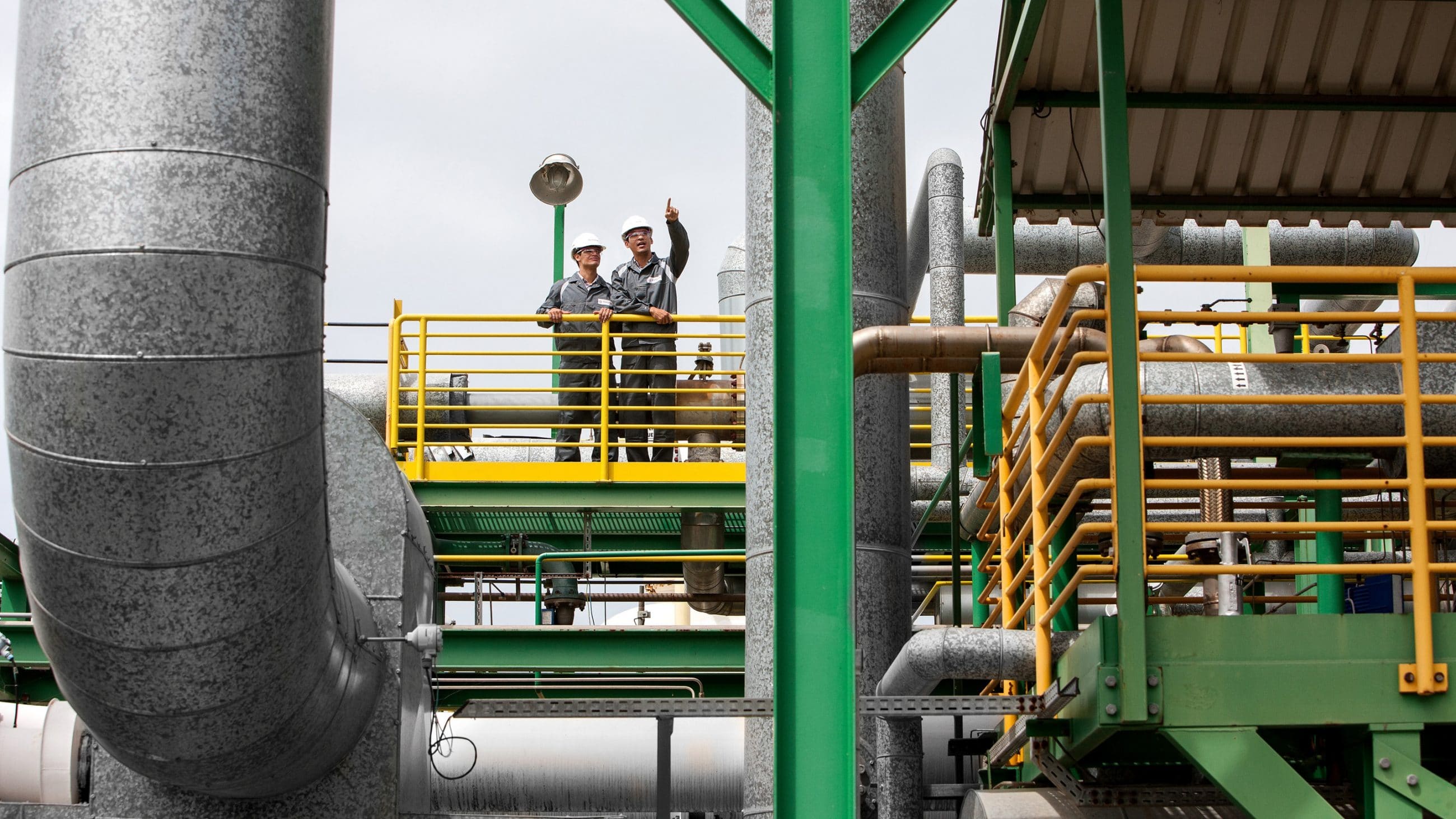Our contribution to achieving global sustainability goals
The UN’s Sustainable Development Goals give us at Evonik Active Oxygens a framework with which to align our strategy and corporate activities. It allows us to develop forward-looking, commercially successful products and solutions offering a range of sustainability benefits. This is how we can bring about many positive changes for people and the environment, and where we want to go even further.
People, Planet, Prosperity, Peace and Partnership: the United Nations have headlined their Agenda 2030 with five core messages. These “five Ps” are now more important than ever before and focus on people, our planet, prosperity, peace and partnership as principles guiding global action. The UN General Assembly adopted Agenda 2030 back in September 2015. It contains 17 global sustainability goals (Sustainability Development Goals, SDGs) and is aimed at policymakers, the business and scientific communities as well as all members of civic society.
Doing business responsibly
The Sustainable Development Goals (SDGs) call on us as a company to engage in responsible and forward-looking business practices:
- We are committed to reducing our CO2 footprint. That is why we are introducing measures to protect the climate.
- We monitor the conditions along the supply chain, in which the raw materials we use are produced.
- We want our employees to stay healthy and feel good about working for us.
We need to do even more as a company that produces some of the world’s most sustainable chemicals — hydrogen peroxide, peracetic acid and persulfates. The UN states this clearly in its Agenda 2030: “We call on all companies to use their creativity and power of innovation to meet sustainable development challenges.”
That’s what we are doing at Evonik Active Oxygens.
We have sustainable products that our experts are constantly enhancing, and we have energy- and resource-saving technologies that we continue to improve. We are therefore making a positive contribution to sustainable development around the world in a wide range of applications. To become even more sustainable, we are working on transforming our processes as we head towards climate-neutral manufacturing.
The Evonik Group is focusing on the following areas:
- preserving our ecosystem
- ensuring health and wellbeing
- moving the circular economy forward
- combating climate change.
You can find out more in our special “Sustainability Focus Areas” publication on the Evonik website.
Evonik Active Oxygens is also active in these focus areas. Here are a few examples of the activities we are undertaking:
Preserving our ecosystem
We use hydrogen peroxide and peracetic acid to produce aseptic packaging designed to keep food and beverage products germ-free. These products remain fresh for longer, without the need for energy-intensive refrigeration. This enables people in remote regions to be provided with food that’s safe to eat. (SDG 2)
We also want to preserve valuable foodstuffs by applying our long-established process, in which peracetic acid is used to combat a fungal toxin that blights wheat and barley. This environmentally compatible treatment enables more cereals of better quality to be used to feed people and animals. (SDG 12)
Ensuring health and wellbeing
An adequate water supply and clean drinking water are essential for people and the environment. That is why we are developing technologies to use less water in our production processes. We are also active in the field of water treatment: our green products, hydrogen peroxide and peracetic acid, enable us to replace less sustainable chemicals like chlorine and therefore help people lead healthier lives around the world.
A wastewater treatment plant using peracetic acid is operated in Memphis, Tennessee, for example, to treat ‘high-maintenance’ wastewater from the Mississippi River. The peracetic acid production plant we built there in the immediate vicinity has also gradually started supplying neighboring municipal wastewater treatment plants. (SDG 6)
The hydrogen peroxide we produce forms the basis of the Fenton process, which is used to pretreat industrial wastewater in Marl, Germany, for example. This treatment reliably prevents pollutants from entering watercourses. Fenton is also an effective and at the same time environmentally compatible and energy-saving alternative to the incineration of aqueous industrial waste. (SDG 6)
Combating climate change
We are developing forward-looking technologies to conserve scarce resources and energy. Our HPPO process, developed together with thyssenkrupp Industrial Solutions, is one example of how this can be achieved. (SDG 9)
In addition to these tangible applications, a highlight is our roadmap to climate neutrality, which we have drawn up in line with the global sustainability goals. It describes the climate protection action we intend to take in order to make our manufacturing entirely climate-neutral by 2040. (SDG 13)
These are just a few examples of how our products and processes are helping us to make people’s lives better today and tomorrow, in accordance with the United Nations guidelines. We will continue to go down this path and open up new lines of business as well. In keeping with SDG 17, we are also only too happy to work together with partners to get even faster and more sustainably to where we all want to be.
